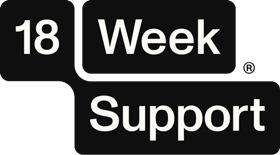With waiting list pressures at record highs, insourcing has become one of the most important ways for NHS trusts to expand capacity.
It enables rapid access to additional clinical capacity and expertise, without the delays or costs of recruiting permanent teams or building new infrastructure. But as more providers enter the market, the critical question for leaders has shifted: it’s no longer whether to insource, but who to insource with.
Sponsored and written by
Get that decision wrong, and the consequences are significant: poor patient feedback, safety incidents, reputational damage, and operational inefficiencies such as inconsistent service delivery and low utilisation. Get it right, and insourcing becomes an extension of the trust itself – clinically-led, governance-aligned, and fully centred on delivering safe, high-quality care to patients.
Why choosing the right partner matters
The NHS has embraced insourcing to deliver additional clinical capacity, helping to reduce waiting lists without the costs or delays of expanding a permanent workforce or infrastructure. But as demand has grown, so too has the number of providers.
“Insourcing is increasingly mainstream across NHS trusts,” says Omar Shahin, executive director at 18 Week Support. “But not every provider is equally equipped to meet the standards of governance, compliance, and clinical quality that NHS trusts expect. Leaders must be confident that the organisations they bring in can deliver as safely and reliably as their own teams.”
Against this backdrop, the question for NHS leaders is clear: what should you look for in a safe, effective insourcing partner?
The four tests of a gold-standard provider
Drawing on lessons from more than 15 years of service delivery experience, we’ve identified four areas that consistently separate the most effective providers from the rest.
1. Regulatory and compliance rigour
Providers should demonstrate Care Quality Commission registration, adherence to NHS employment check standards, and recognised quality accreditations such as ISO9001 and ISO14001. Cybersecurity credentials are increasingly important, too.
“Compliance cannot be an afterthought – it has to be baked into every role, every process,” notes Lesley Crosby, 18 Week Support’s director of nursing. “Trusts should be asking for evidence, not just assurances.”
Test to apply: Can the provider produce verifiable, up-to-date certifications and audit trails?
2. Governance and risk management
Robust providers mirror the NHS’s own governance standards, with floor-to-board oversight and proactive risk management. Embedded Patient Safety Incident Response Framework (PSIRF) compliance and a clear incident reporting framework are non-negotiable.
A critical part of this is visible clinical leadership. Senior clinicians provide the bridge between the trust and the provider, ensuring governance decisions are informed by frontline insight, and patient safety always comes first.
As Ms Crosby puts it: “The best insourcing doesn’t just slot into the clinical rota; it integrates seamlessly into the trust’s governance framework. Experienced clinical leaders on site help ensure every decision supports safe, patient-centred care.”
Test to apply: Does the provider have senior clinical leadership embedded in the programme, and how do they demonstrate that risk management is guided by frontline clinical insight?
3. Service quality and assurance
Trusts should expect systematic clinical audits, mechanisms for sharing lessons learned, and real-time patient feedback. Without these, service quality becomes difficult to track and improve.
“Insourcing should be a quality driver, not a temporary sticking plaster,” says Josh Collins, chief executive of 18 Week Support. “Providers who can evidence outcomes and improvement are the ones that will genuinely add value.”
Test to apply: What data and feedback mechanisms will the provider share in real time, and how are these used to improve services?
4. Workforce and operations
Behind every successful programme is a stable, well-managed workforce. The markers of sustainability are clear: substantively employed clinical leadership, robust care coordination support, and minimal reliance on agency staff (less than 1 per cent is achievable).
“Continuity of staff is critical,” says Jack Player, 18 Week Support’s director of workforce. “A well-supported, consistent workforce gives patients the safe, joined-up care they deserve.”
Test to apply: Can the provider demonstrate workforce continuity and retention, not just fill a rota?
Raising the bar together
Insourcing is not a silver bullet, but done well, it can be transformative – reducing waits, improving flow, and enhancing patient outcomes. Faster access isn’t just about shortening lists: it means earlier interventions, fewer complications, and a better patient experience.
This is especially important as financial pressures mount. Providers that can deliver both cost efficiency and the best patient experience enable trusts to achieve more for patients without compromise.
“Ultimately, insourcing should feel like an extension of the trust’s own service – clinically-led, governance-aligned, and patient-centred,” emphasises Mr Collins. “When those conditions are in place, the benefits are immediate and lasting.”
How we approach insourcing at 18 Week Support
At 18 Week Support, we’ve built our model around these principles since our founding. As the UK’s first clinically-led insourcing provider, we have delivered services to more than 90 NHS trusts over 15 years, with approved CQC registration and ISO 9001 accreditation.
Our track record includes:
- Building a clinical workforce of 13,763 professionals
- 339,957 patients treated in 2024-25
- 99.1 per cent patient satisfaction
We don’t claim to have all the answers – but we believe providers should be judged against rigorous, transparent standards that safeguard patients and give trust leaders confidence.
Because, as the NHS faces its toughest test yet, only partners that combine capacity with governance, quality, and a well-supported workforce will help trusts deliver sustainable improvements in patient care. That is the true measure of insourcing done right.
To learn more about how 18 Week Support partners with trusts, please contact partnerships@18weeksupport.com.

























